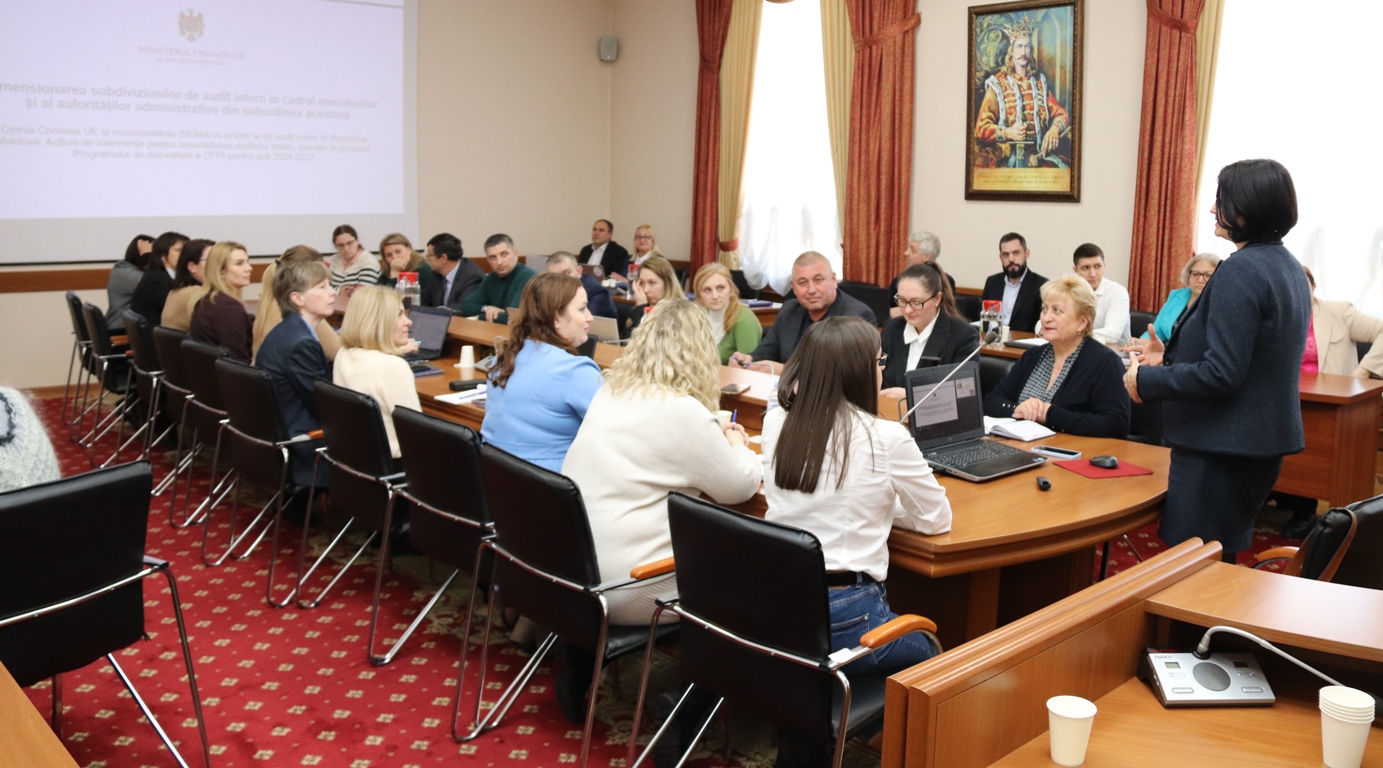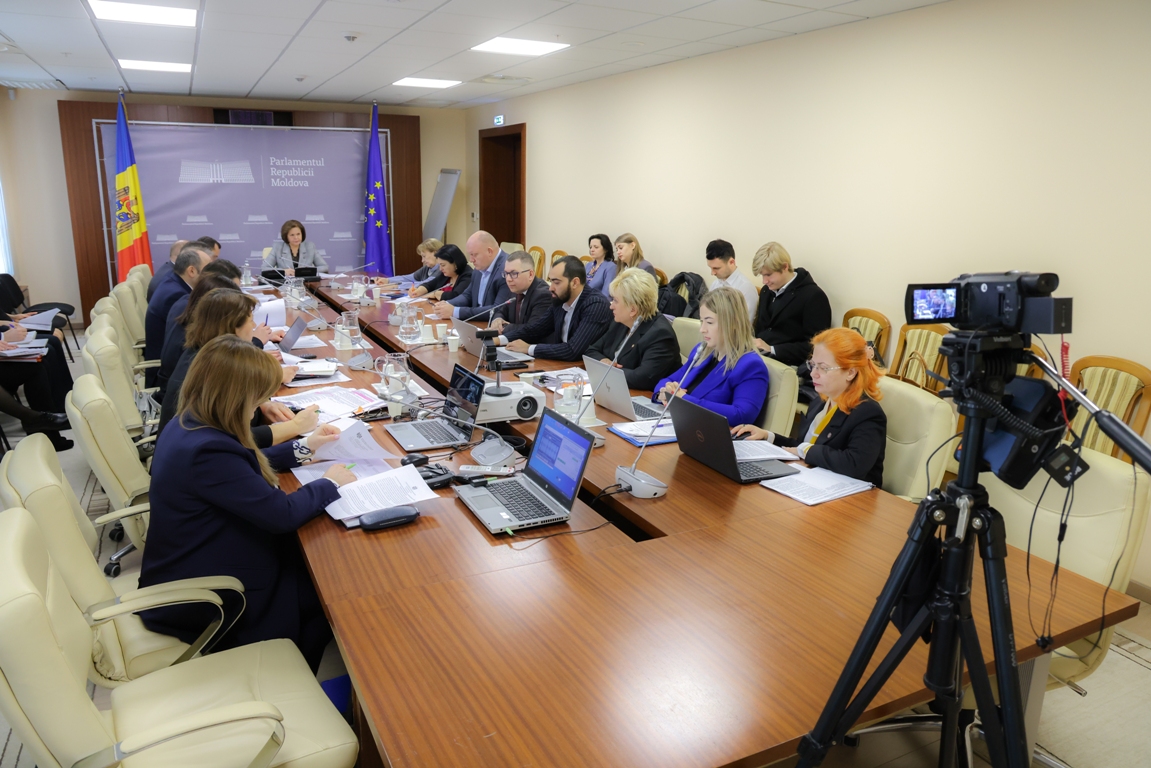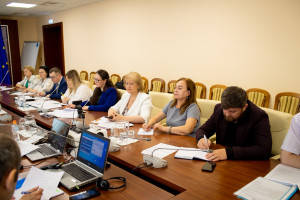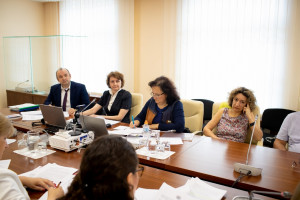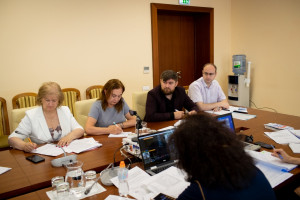
The conclusions of the Performance Audit Report "Do the actions related to the specific objectives of the National Cancer Control Program, carried out during 2017-2022 (I semester) by the responsible authorities, contribute to the achievement of the expected results?" and of the Compliance Audit Report on the market introduction and management of medicines and medical devices in the Republic of Moldova were presented by the Court of Accounts of the Republic of Moldova (CoARM) today, June 21, within the Public Finance Control Committee (PFCC).
Examining the results of the audit, Sergiu Știrbu, Member of the Court of Accounts and the CoARM’s auditors mentioned that the measures taken by the authorities responsible for reducing cancer mortality among the population of the Republic of Moldova were not effective. The evolution towards achieving the objectives of the Action Plan of the National Cancer Control Program (NCCP) for 2016-2025 is a slow one, emerging from the situation found when evaluating the three specific objectives of the Program.
The Court of Accounts certifies that the institutions involved in the process of realizing the NCCP and the Action Plan did not have processes in place to ensure the efficient and effective fulfillment of the attributions, objectives and monitoring indicators, a situation expressed throughout:
- ineffective planning and non-identification of financial means for financing the actions of the Program, which conditioned the non-fulfillment of the established objectives;
- the insufficiency of communication regarding the monitoring, evaluation and reporting of result indicators between relevant institutions, which determined the non-adjustment of the necessary regulatory framework and the non-approval of stage II of the NCCP, etc.;
- the failure to achieve the expected level of some actions established in the NCCP, as a result of the insufficiency of the allocated financial means and the non-identification of their funding sources, led to: not providing or partially providing the needs of devices and equipment for the diagnosis and treatment of cancer patients; not ensuring the creation of reference centers; failure to provide feasibility studies on iodine treatment and bone marrow transplantation;
- non-regulation of palliative care services and the National Cancer Registry;
- the need to adjust the National Clinical Protocols, the provision of palliative and rehabilitation services;
- the decrease in the number of beds in the premises of the PHI Oncological Institute, which influenced the increase in the waiting period of the population diagnosed with cancer, etc.
The situations found were determined, in particular, by the insufficiency of financial means to carry out the actions established in the NCCP, the non-adjustment of the regulatory framework to the legal norms, the fluctuation or lack of human resources and the low interaction between the parties involved, etc.
In conclusion, the Chairperson of the Public Finance Control Committee, Tatiana Cunetchi, thanked the Court of Accounts for the fact that it addressed the issue of cancer, sensitive for society, by carrying out the performance audit that showed the actions taken and their degree of efficiency. "There are many questions to which the Ministry of Health, together with all the entities involved, must provide answers. Much is being done, for which we are grateful, but it is not enough. We have to think about the perspective, what we have to do to minimize the impact of this disease on society", summarized the Chairperson of the committee.
Concerning to the second Audit Report on the Compliance of the market introduction and management of medicines and medical devices in the Republic of Moldova, the CoARM’s auditors identified a series of irregularities.
One of the findings of the audit reveals that the reduced number of medicines registered in the Republic of Moldova attests to the withdrawal from the market of a significant number of medicines, which may result in fewer competitors and manufacturers for international non-proprietary names.
With reference to the manufacturers' prices of both imported and domestic drugs, there are deficiencies due to the fact that the holders of the Medicines Registration Certificate did not ensure the declaration of the manufacturer's price. Thus, in the National Price Catalog the prices were declared and approved for only 3195 types of medicines, which represents 55% of the medicines registered in the State Nomenclature. This situation creates premises for increasing the prices of medicines delivered to medical institutions and purchased by citizens, because they are not approved by regulation.
Regarding the import of medicines, the audit found deficiencies, focused on the non-correspondence of the quantity, price and date of import with the data of the import authorization, namely:
- the drugs were imported at higher prices compared to the ones requested at the authorization stage, cumulatively exceeding by 11 million lei the price of the drugs from the technical and price specification presented by the economic operators;
- medicines in the amount of 55 million lei were imported into the country after the expiration of the validity period of the import authorization;
- drugs in the amount of 117 million lei were imported into the country before the import permit authorization was issued;
- economic operators imported medicines exceeding the quantity permitted for import, and the value of imported medicines over the allowed limit was 1 million lei.
Concerning the access to pharmaceutical assistance, the auditors found that pharmaceutical institutions were established and located in cities with non-compliance with demographic norms. As an example, for 935 thousand people in 7 cities, licensed pharmaceutical institutions exceeded by 40% the requirement to establish a pharmacy per 3,000 - 4,000 people, and in some rural localities the pharmacies are insufficient and affect the access to pharmaceutical assistance for 71 thousand people.
The Court of Accounts concluded that the authorities and institutions involved in these processes did not show, in some cases, the appropriate responsibility in terms of the compliant achievement of the objectives, situation conditioned including by the fragmented intersectoral communication, the outdated regulatory framework and the lack of the necessary resources.
 WITH DEFICIENCES OF VIEW
WITH DEFICIENCES OF VIEW Youtube
Youtube Facebook
Facebook


 print
print
